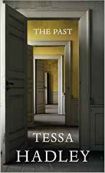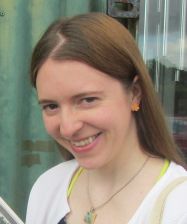The Past by Tessa Hadley
Tessa Hadley writes beautifully subtle stories of English family life. Her understated style has a touch of the 1950s or 1960s about it, calling to mind Elizabeth Taylor or early Margaret Drabble, and she seems to adapt classic genres like the novel of manners or the country house novel. Here she deliberately channels Elizabeth Bowen with a setup borrowed from The House in Paris: the novel is divided into three parts, titled 'The Present', 'The Past', and 'The Present'. That structure allows for a deeper look at what the house and a neighbouring cottage have meant to the central family, and paves the way for one final shocker of a secret.
| The Past by Tessa Hadley | |
|
| |
| Category: Literary Fiction | |
| Reviewer: Rebecca Foster | |
| Summary: Four adult siblings gather at their grandfather's Devon vicarage for one last summer holiday before the house is sold. Their interactions, past and present, skirt the edges of tragedy and show the secrets and psychological intricacies any family harbours. | |
| Buy? Yes | Borrow? Yes |
| Pages: 368 | Date: September 2015 |
| Publisher: Jonathan Cape | |
| External links: Author's website | |
| ISBN: 9780224101691 | |
| Video:
| |
Middle-aged siblings Harriet, Roland, Alice and Fran gather at Kington, the family vicarage in rural Devon, for one last summer holiday before they put the old place on the market. Harriet, who works with asylum seekers and watches birds in her spare time, prizes her solitude. Roland is accompanied by his third wife, Pilar, an Argentinian lawyer, and his sixteen-year-old daughter Molly. Alice, the free spirit of the family, has chosen to bring her ex-boyfriend's son, Kasim, who is 19 and coasting through his first year of uni. Lastly is Fran with her two children, Ivy and Arthur, who are oddly Victorian in their attire and habits.
Kington is an 'archetypally English' house and 'an enchanted place'; along with the churchyard, an abandoned cottage and nearby fields, it forms the small stage for the novel's events. Within these boundaries, the characters attract and repel each other in sometimes unexpected ways. For instance, Kasim sets out to seduce Molly and the two younger children latch onto the teens like acolytes; meanwhile, Alice and Fran dislike Pilar, but Harriet is smitten with her new sister-in-law.
Over the course of several weeks, the circumscribed setting and the welter of hormones and emotions start to take their toll. Ivy and Arthur explore the derelict cottage and find a dead dog and a porn stash, giving an air of seediness that will approach menace as the novel goes on. Rainy days force the characters to deal with boredom in their own ways. 'Something overheated and uneasy seemed to have taken possession of their whole household, under siege from the everlasting rain,' Roland thinks. Before things can come to a head, though, the novel slips back into the past to look at the previous generations that inhabited the house.
In 1968 Jill leaves her husband, Tom, and takes Harriet, Roland and baby Alice down to live with her parents at Kington. Tom has had an affair with his secretary, and now is reporting on the student riots in Paris. 'Everything that seemed established and set in stone turns out to be insubstantial as fog,' he excitedly reports to Jill. With her marriage foundering, Jill can only see the negative side of such a pronouncement. Like Stella in Clever Girl, she longs to return to academia after years of young motherhood. She even enquires into renting the nearby cottage, abandoned even then, and a scene set there hints at one last secret that present-day Kington will continue to guard.
From the first section, we already know that Tom and Jill's marriage broke down, and that Jill died of breast cancer when Alice was 13. What, then, are we meant to take from 'The Past'? Partly, I think, we should have a sense of tragedy averted – things fell apart, yet somehow everything turned out alright. This is echoed in the final section with a near-disaster at the cottage. In both cases Hadley takes readers right to the brink of catastrophe but then pulls back into the realms of drawing room comedy. How ghastly, we shudder, before retreating into Kington's warmth.
Ultimately I felt that the links between the present and past were perhaps a little weak, and the Pilar subplot (both Harriet's crush and Pilar's search for her real parentage – she was adopted during the disappearances) struck me as unnecessary. Still, Hadley writes such lovely descriptive prose ('Poetic moths, significant in a thin soup of lesser insects, blundered about the candle flame') and has such insight into family dynamics ('They knew one another so well, all too well, and yet they were all continually surprised by the forgotten difficult twists and turns of one another's personalities') that I would happily read anything she writes.
Further reading suggestion: If this sounds like your cup of tea, you will also want to read Married Love by Tessa Hadley. For another very English country house novel spanning multiple decades, you might turn to The Stranger's Child by Alan Hollinghurst.
Please share on: ![]() Facebook,
Facebook, ![]() Twitter and
Twitter and
![]() Instagram
Instagram
![]() You can read more book reviews or buy The Past by Tessa Hadley at Amazon.co.uk Amazon currently charges £2.99 for standard delivery for orders under £20, over which delivery is free. (Paid link)
You can read more book reviews or buy The Past by Tessa Hadley at Amazon.co.uk Amazon currently charges £2.99 for standard delivery for orders under £20, over which delivery is free. (Paid link)
![]() You can read more book reviews or buy The Past by Tessa Hadley at Amazon.com. (Paid link)
You can read more book reviews or buy The Past by Tessa Hadley at Amazon.com. (Paid link)
Comments
Like to comment on this review?
Just send us an email and we'll put the best up on the site.

